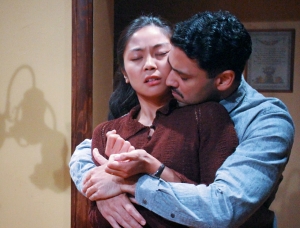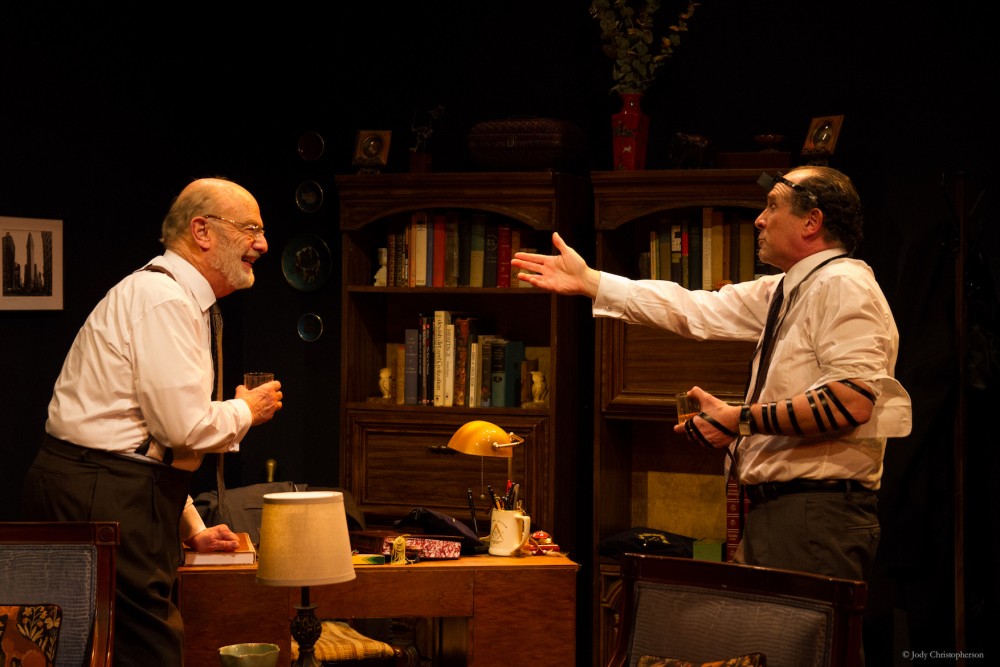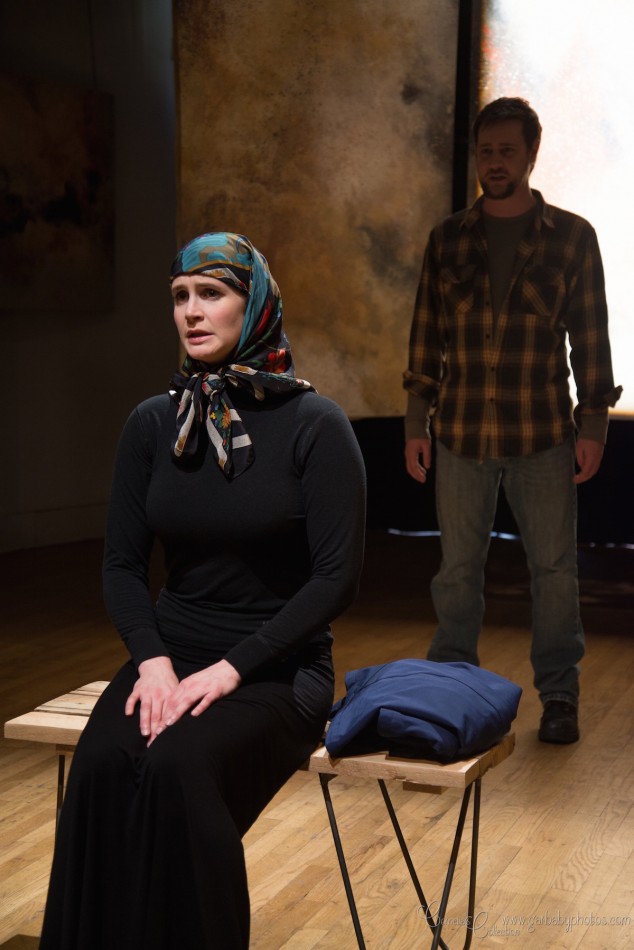By JK Clarke
One of the more intriguing components of Eugene O’Neill’s masterpiece Long Day’s Journey Into Night is its deliberate length—crafted to make the audience viscerally experience the Tyrone family’s agonizing day. We are invited into the family home to participate in the lassitude and anxiety this painful day brings them. One recent production even staged it in the actual Connecticut home where the story (largely autobiographical) takes place, dragging the performance throughout the day, allowing its limited audience to even experience the changing sunlight and shadows in the house. But what happens when this deliberately long play is severely abridged, as is the case with Audible Theater’s new production at the Minetta Lane Theatre (through February 20) under the direction and dramaturgy of Robert O’Hara?
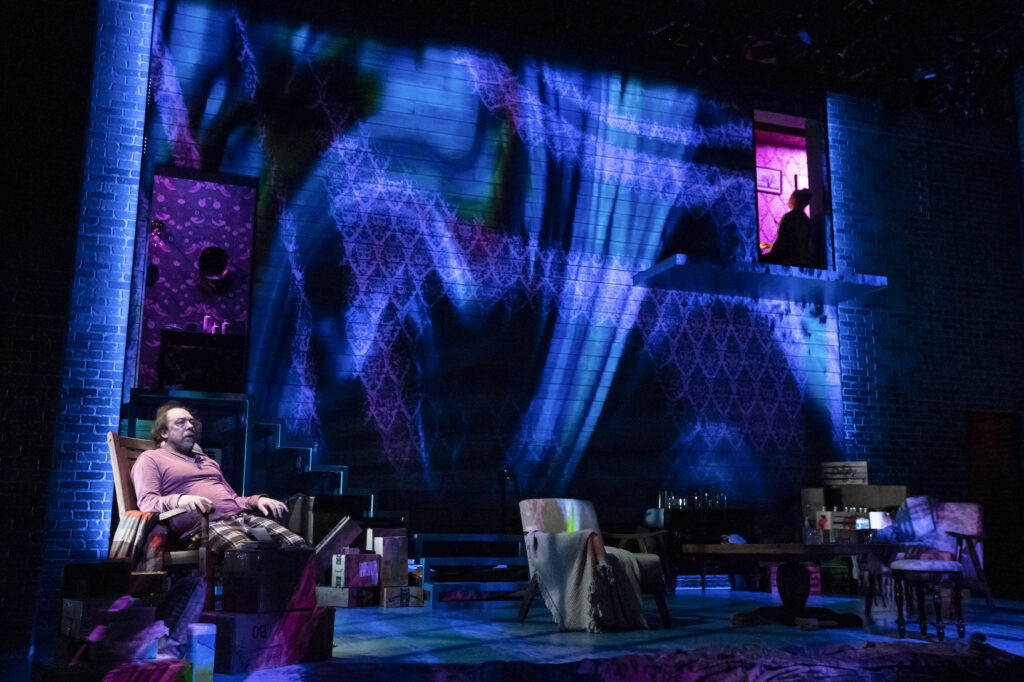
O’Hara has made a number of audacious moves in his staging of Long Day’s Journey, but cutting the three-hour play to just shy of two hours was probably the riskiest, and likely the one thing that actually damaged an otherwise compelling production. Visiting with this dysfunctional family for a mere two hours ends up only feeling mediocre and mildly repetitive. I’ve seen a three-hour version of the play that feels shorter than the two hours of this one. We don’t end up feeling the painful ennui that we do with a complete version, and that erodes its power.
Nonetheless, O’Hara, a talented writer/director who most recently directed the Tony-nominated Slave Play (2019-20) and wrote the vastly-underrated Barbecue (2015), takes some chances that end up working quite nicely. A lot has been made of casting choices, as the family is now made up of white parents with their adult children being played by African-American actors. But the wrong elements are being given attention. Nothing really changes as a result of this casting and the move is nothing new. Actors are actors, after all. Rather, by moving the action forward into a contemporary setting, some of the elegance and uptightness of the parents are lost. No longer is Mary Tyrone an upper middle class, elegant lady with beautifully coiffed hair; nor is James Tyrone a good-looking, dapper, upright, respectable citizen. Rather, both look like they just left a Grateful Dead show, he with untucked shirt and cargo shorts, she with hair that doesn’t appear to have seen a stylist in years. Bill Camp’s portrayal of this James Tyrone is nonetheless quite riveting. The sons are more believable, a slacker (a terrific Jason Bowen as James Jr.) and an insecure writer (based on O’Neill himself), both with very serious alcohol addiction.


Despite the presence of three other addicts in the house, the crux of the play is Mary’s (Elizabeth Marvel) ongoing addiction to opiates. In the original, she takes morphine, likely taken in an oral form, either liquid or pill. In this production, her addiction takes a more sinister turn, with her trudging up the stairs to a spare room where we witness (via an opening in the wall) her heretofore unseen drug use. This time, however, she’s strapping up her arm, heating a spoon, and injecting herself with heroin. Though the base elements of the drug are both the same, the implications of intravenous heroin usage go far beyond the scope of Mary’s problems. For example, in the unedited script, she gets her drugs—presumably unadulterated—from various pharmacists around town. Heroin, on the other hand, is generally not available over the counter and the illicit purchase of the—likely adulterated and thereby far more dangerous—drug involves entering an often sketchy underworld. These are two entirely different levels of drug abuse and the revised play’s text does not account for these differences, rendering these circumstances far less believable. And this is without getting into her behavior toward the end of the play which is less like a junkie’s and more like a bipolar alcoholic’s.
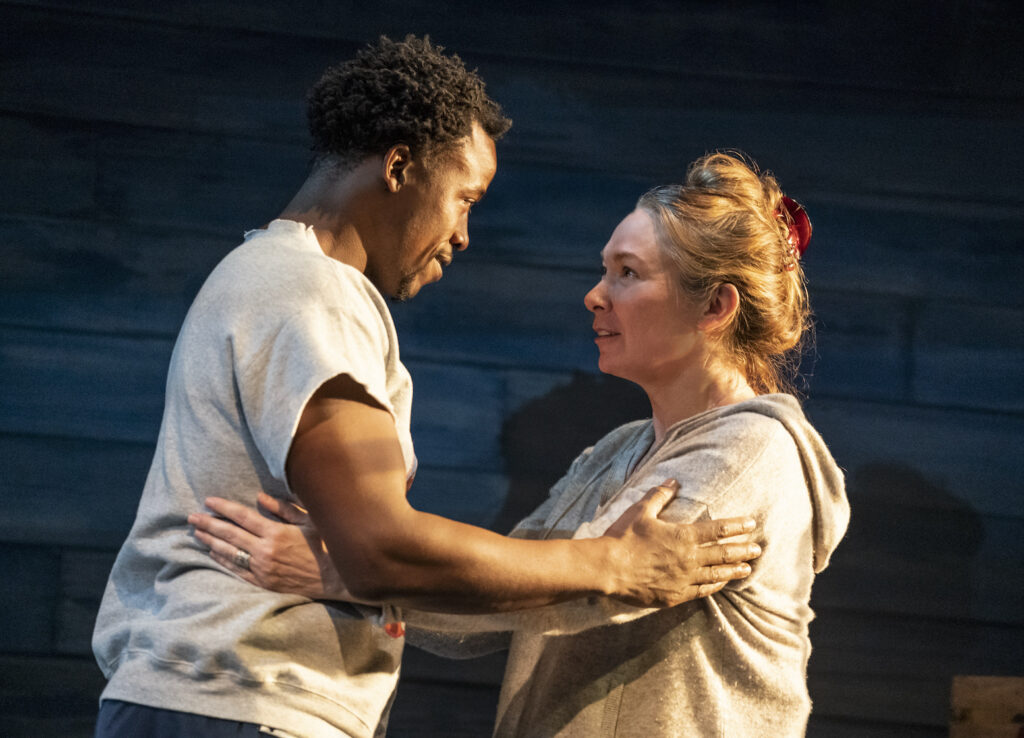

Pushing the play into modern times, seemingly to incorporate the COVID-19 pandemic, creates forced and unlikely circumstances. The family worries that Edmund Tyrone (a very sympathetic Ato Blankson-Wood) may have Covid (rather than consumption/TB as scripted)—they are waiting for word from the family doctor. Meanwhile, they all interact with him without masks (except suddenly in one scene when he is yelling at this father—the abrupt donning of masks is, as we well know after two years of pandemic living, absurd and pointless). He seems to have a slight cough, but virtually none of the other early-onset symptoms, such as a severe fever that would likely render him so enfeebled he wouldn’t be able to do any of the things he does throughout the day, like drinking whiskey or reading a book.
Other new elements detract from the play’s message, as well. The family’s modern and messy house (Clint Ramos’s set design is innovative and practical, to be sure) again makes the contrast between family and crisis seem less dramatic. That the role of the maid Cathleen has been erased is starkly evident. If you walked into their living room you wouldn’t be terribly surprised that it was inhabited by drunks and addicts. Conversely, the Tyrones of the original text live behind the facade of propriety and WASPish purity.


Overall, this Long Day’s Journey Into Night isn’t really that famous play at all. It bears a strong resemblance, but it’s just no longer the real deal. Too many elements have been taken away and the story is too altered, in a way that O’Neill likely wouldn’t have preferred. But what remains is an entertaining enough production with strong enough performances and a resonating message: don’t drastically edit already great, well-established plays.
Long Day’s Journey Into Night. Through February 20 at Audible Theater’s Minetta Lane Theatre (18 Minetta Lane, between MacDougal & Sixth Avenue, Greenwich Village, NY). www.longdaysoffbroadway.com
Photos: Joan Marcus





